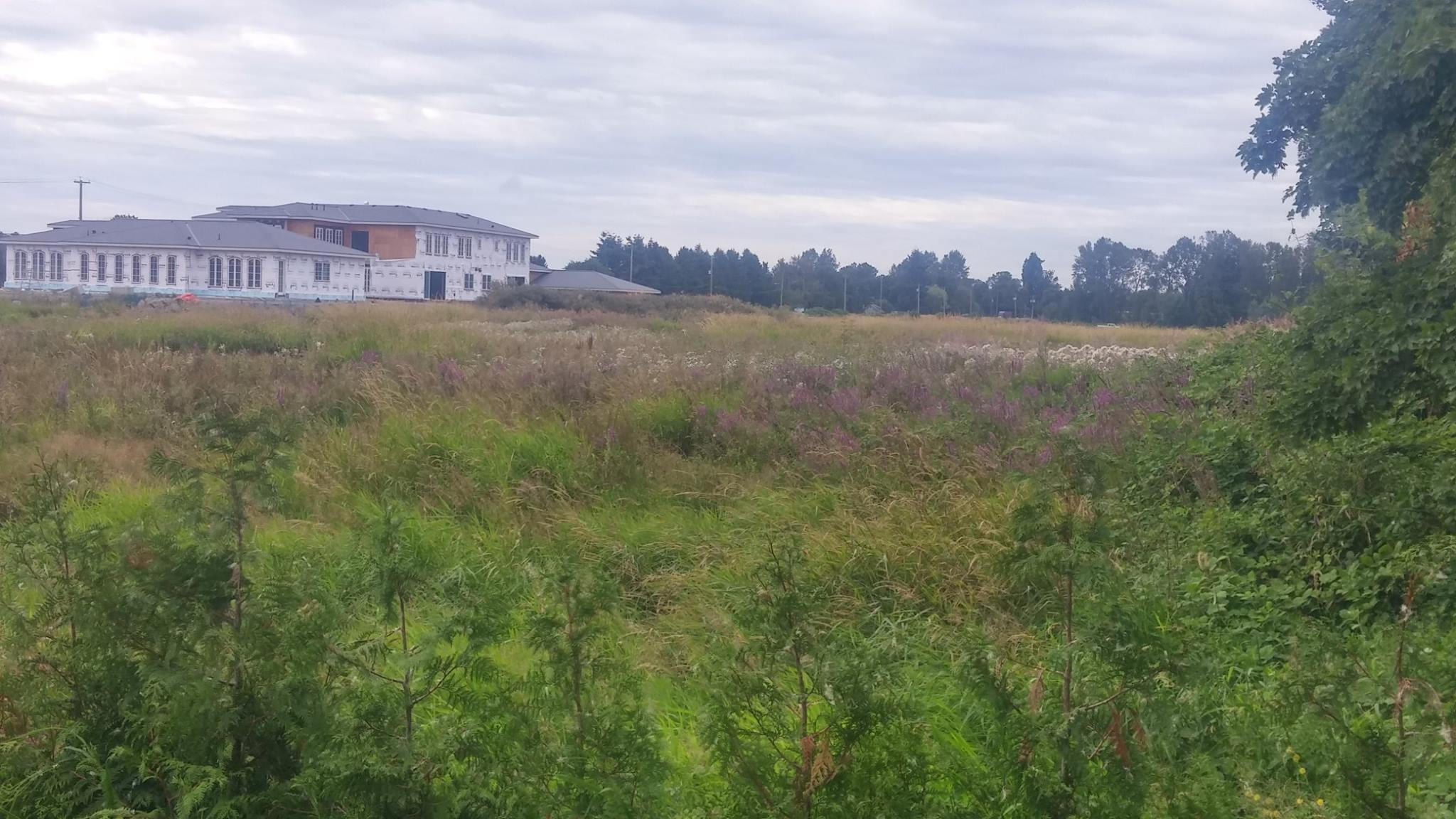Speculators targeting Richmond farmland threaten local food supply

By Lisa Tanh
Speculative development is raising Richmond’s farmland prices and slowing down local food production says a grassroot organization fighting against this issue.
Laura Gillanders, a Richmond resident and coordinator of FarmWatch, an organization that is focused on preserving Richmond’s farmland and curbing speculative development, said that one by one farmland is being converted into mega mansions. The most recent example is a four-acre blueberry farm on Number 7 road that was purchased last year for $2 million dollars and is now being listed for $7.7 million dollars. To date, the property has been relisted four times and received a permit to build a mansion.
According to FarmWatch, Richmond has the best soil for farming in all of Canada and only a developer can purchase farmland now – which is threatening the future of local food.
“Because the farmers that are producing local food are aging out, there isn’t anybody who can take over the farm and continue on with it,” Gillanders said. “We will stop producing local food and that’s happening sooner rather than later.”
Recently, the Ministry of Agriculture announced they will be reviewing the Agriculture Land Reserve (ALR), which was established in 1973 to protect B.C’s dwindling supply of agricultural land.
“The Ministry of Agriculture guidelines to bylaw development in farming areas state that the single most important factor in keeping farmland prices reasonable is the home size,” Gillanders said. “So they recommend that a home size be calculated no larger than what would be allowed on a nearby residential lot. But these are just recommendations [and] municipalities are not following them.”
Kent Mullinix, the director for the Institute for Sustainable Food Systems at Kwantlen Polytechnic University, said the issue should have never gotten this far.
“The city of Richmond should have a bylaw in place that says on agriculture land, farm land residences cannot exceed a footprint of X and then this wouldn’t even be an issue,” he said. “But the city of Richmond didn’t do their job, from my perspective. [They] voted for estate residences on ALR land.”
Miles Smart, a third-generation farmer who runs Cherry Lane Farms on Beckwith Road, said the rise of farmland prices is creating other problems down the line.
“It’s hard to find laborers that will stay with you season after season because it’s tough to live in [the] city,” he said. “And then there’s the problem of restaurants that have been closing in Vancouver – or simply don’t open up shop – because rent is too expensive. That leads to restaurants not having the money or desire to buy from small local producers which makes my job more difficult.”
Gillanders said people need to understand that only five per cent of land in B.C. is in the ALR and that only one per cent is prime for producing fruit and vegetables.
“This is an important issue for all of Lower Mainland, B.C. and Canada,” she said. “There are jobs and food on this land and to just pave it it over, so that one person can make millions of dollars by exploiting a property, is not a long-term good use of this land. It was put in the ALR for a reason – it’s for food production.”
[Photo Credit: FarmWatch]



